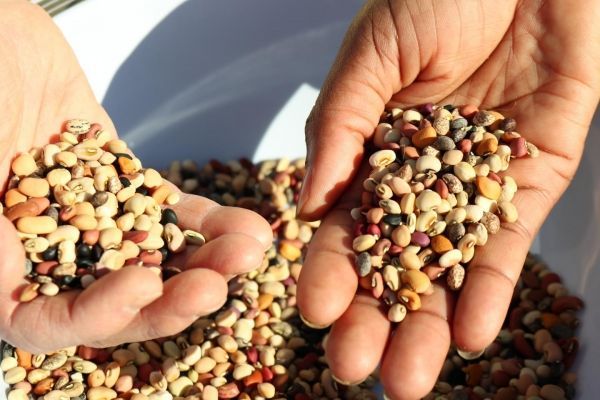UC Riverside scientists have decoded the genome of black-eyed peas, offering hope for feeding Earth’s expanding population, especially as the climate changes.
Understanding the genes responsible for the peas’ drought and heat tolerance eventually could help make other crops tougher too.
Black-eyed peas are small beans with dark midsections. They’ve been a global dietary staple for centuries due to their environmental toughness and exceptional nutritional qualities, such as high protein and low fat. In sub-Saharan Africa they remain the number one source of protein in the human diet.
A genome is the full collection of genetic codes that determine characteristics like color, height, and predisposition to diseases. All genomes contain highly repetitive sequences of DNA that UCR Professor of Computer Science and project co-leader Stefano Lonardi likens to “hundreds of thousands of identical jigsaw puzzle pieces.”
Read more at University of California - Riverside
Image: Hands of Timothy Close, professor and geneticist at UC Riverside and Sassoum Lo, PhD student, UCR Plant Biology Program, paper co-author from Senegal. Close and Sassoum hold cowpea seeds with a range of coat colors, patterns, sizes and shapes. (Credit: TJ Close / UCR)


